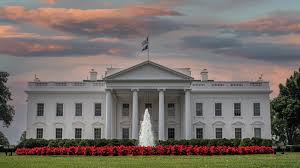The White House: A Symbol of American Democracy

Introduction
The White House stands as a powerful symbol of American democracy, serving not only as the residence of the President of the United States but also as the epicenter of U.S. political activity. Its significance extends beyond mere architecture; it embodies the ideals and functions of the executive branch of government. Amidst ongoing political developments, understanding the role of the White House is crucial for citizens who seek to engage with their government.
Recent Developments
In recent months, the White House has been a focal point for several significant events affecting not only domestic policy but also international relations. With the Biden administration emphasizing initiatives on climate change, economic recovery, and healthcare reform, the White House has been active in coordinating responses to diverse challenges. The passage of the Bipartisan Infrastructure Law and efforts to manage the COVID-19 pandemic have colocated the White House at the forefront of national attention.
Moreover, the White House’s foreign policy has come under scrutiny as several international issues unfold, including tensions with China, the ongoing conflict in Ukraine, and trade negotiations with Canada and Mexico. The administration’s diplomatic efforts highlight the role of the White House in global discourse, showcasing its power and influence on a larger stage.
Historical Context
The White House has a rich history that dates back to its completion in 1800. Originally designed by James Hoban, the building has undergone numerous renovations and expansions over the years, adjusting to the needs of the nation and its leaders. The White House has witnessed pivotal moments in American history, from the signing of significant legislations to hosting international leaders.
Importance for Citizens
For citizens, the White House represents both a physical space and an idea—the possibility of change within the government. As the media broadcasts presidential speeches and major decisions made within its walls, the public becomes more aware and engaged with the political process. Understanding who occupies the White House and their policies allows citizens to voice their support or dissent, making civic involvement essential in shaping the nation’s future.
Conclusion
As the U.S. continues to navigate through complex issues, the White House remains a crucial player in determining the trajectory of national and global events. Its role as a center of political power is ever important, reminding citizens of their power in shaping governance through their participation. As we look towards the future, the activities and policies emanating from the White House will undoubtedly influence the landscape of American politics in the years to come.








